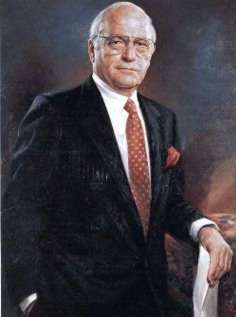History
The American Board of Family Practice* established the Nicholas J. Pisacano, MD Memorial Foundation in January 1991 (now the Pisacano Leadership Foundation) as an enduring tribute to the founder and first Executive Director of the ABFP. Dr. Pisacano is widely accredited as one of the leaders in the effort to have Family Practice recognized as a major specialty. His perseverance was finally rewarded in 1969 when the American Board of Family Practice was founded. Dr. Pisacano was a strong advocate of the original precepts laid down by Hippocrates. He believed that the welfare of the patient was utmost and that physicians should be broadly educated. Thus followed Dr. Pisacano’s strong belief in the importance of the humanities in each physician’s education. He clearly recognized that physicians need technical medical expertise, but they also need the personal skills necessary to relate to their patients. Dr. Pisacano did not find favorable the displacement of interpersonal medicine that came with high technology. In fact, he said that “we should embrace superspecialism and high technology only as they contribute to the welfare of human beings.” If technology did replace some of the physician’s duties, Dr. Pisacano believed that more time should be spent on interpersonal relations.
Dr. Pisacano did not accept mediocrity; instead he believed strongly in striving for excellence. A part of this striving for excellence demands that physicians give back to their profession in an act of unselfish caring and giving. Excellence is ultimately measured by the impact of the specialty on the health of the people. Thus Dr. Pisacano’s belief that “family practice is the keystone specialty in American medicine,” and that “we will do everything in our power to preserve, enhance, and improve it.” With these ideals in mind, the Pisacano Leadership Foundation seeks to support and advance the careers of accomplished students and physicians in the field of family medicine who have demonstrated the leadership qualities which Dr. Pisacano embodied.
Dr. Pisacano was born in Philadelphia and later practiced medicine there for seven years. He received his bachelor of arts degree from Western Maryland College and his doctorate degree in medicine from the Hahnemann School of Medicine in Philadelphia. He completed his residency at Stamford Hospital in Connecticut. In 1962 Dr. Pisacano was recruited from his practice in Philadelphia to join the faculty at the University of Kentucky in Lexington, Kentucky.
 Dr. Pisacano held many positions at the University of Kentucky (UK), including: member of the school’s Board of Trustees, assistant dean of the College of Arts and Sciences, director of continuing medical education at the University of Kentucky Medical Center, and assistant to the vice president at the Medical Center. As a professor Dr. Pisacano was well respected and liked. In 1965 he was voted UK’s most popular professor.
Dr. Pisacano held many positions at the University of Kentucky (UK), including: member of the school’s Board of Trustees, assistant dean of the College of Arts and Sciences, director of continuing medical education at the University of Kentucky Medical Center, and assistant to the vice president at the Medical Center. As a professor Dr. Pisacano was well respected and liked. In 1965 he was voted UK’s most popular professor.
From the beginning Dr. Pisacano had a strong desire to transform Family Practice into a respected academic discipline with its own set of unique requirements. He spent an enormous amount of time and effort to achieve recognition of Family Practice as one of the major specialties — one that would be board certified. His fierce devotion and perseverance was finally rewarded in 1969 when the American Board of Family Practice was founded. Dr. Pisacano became the organization’s executive director and remained so until January 1990. In 1978 he left the University to work full time for the Board, but he continued teaching at the University part time.
TWO QUOTES FROM DR. PISACANO:
“The time has come when we must act to save medicine as a profession. We not only owe it to ourselves and to the youngsters who follow us, but we owe it primarily to the public, who needs a revered profession. Physicians as a group must reconsecrate ourselves to those ancient and cherished values of caring and giving. We must enforce continuing competence and proficiency, but, above all, we must rededicate ourselves to public service. We should embrace superspecialism and high technology only as they contribute to the welfare of human beings. We welcome and support scientific inquiry and new technology, but we must maintain a healthy balance between those advances and humanism. Let us not be drawn into mediocrity. Let us show the people that we hold high the staff of Aesculapius and that we can, and will, care for all who enter the health system with equal concern and caritas. These proposals are not foolish dreams. If we act to reconsecrate ourselves as physicians, think of the good that would be accomplished; think of what the public’s image of us would be — but most important, think of how you would feel — Doctor!”
Excerpts from: “Reconsecratio Medici,” Nicholas J. Pisacano, MD, 1989 Journal of the American Board of Family Practice
“There is a rare quality in human beings, an artistic attribute perhaps, in which one appreciates or feels without necessarily experiencing. For example, it takes a certain type of person to have felt unrequited love without ever having been in love — to ‘sense’ pain without ever having experienced painful stimuli — to ‘know’ grief without having actually suffered the loss — to know hunger with a full belly, and so on. Some call this particular quality compassion. Dante states, ‘Compassion is not a passion; rather a noble disposition of the soul made ready to receive love, mercy, and other charitable passions.’ Perhaps we need to devise some method of screening for those types of people with this ‘noble disposition of the soul’ to enter the field of family practice; for it is in family practice that we see human beings across the board. We see the noble and the base; the loving and the hateful; the brilliant and the stupid; the infant and the aged; the smooth and the stormy adolescents; the beautiful and the ugly; the stable and the demented; the honorable and the depraved. We share the joy of birth, and the grief of death. The whole gamut of the life scene is before us in family practice from conception to death. The fields of study are limited only by our own limitations!”
1977 W. Victor Johnston Oration, Ontario, Canada, Nicholas J. Pisacano, MD
Foundation Seal
Aristotle defined the liberal arts as the proper studies for free men who seek intellectual and moral excellence in general rather than what is immediately practical at the end of their education — thus drawing a distinction between liberal and technical education. Aristotle foresaw a differentiation between general and specialized training. Cicero and Varro believed the liberal arts were the basis for what the Romans called the liber homo, the “free man.” The Romans divided the liberal arts into a prime group called the trivium and a secondary group called the quadrivium. The trivium consisted of grammar, rhetoric and logic. Grammar taught discipline in writing and speaking correctly; rhetoric taught one to express one’s self clearly and effectively; and logic taught one to learn to reason correctly, to come to correct conclusions and recognize false conclusions. These three basic pillars had to be mastered before one could begin on the next four pillars, known as the quadrivium, which consisted of arithmetic, geometry, astronomy and music. These seven pillars are known as the propaedeutic skills. In short, propaedeutics is defined as “the body of principles or rules introductory to any art, science, or subject of special study.” The Ciceronian ideal pertaining to the whole man concept advocates solid character, abstract learning and avoidance of undue specialization. Thus, the seven pillars have become the symbol for generalist education and the attained wisdom that follows such education.”Wisdom hath builded her house, she hath hewn out her seven pillars.”
(* renamed the American Board of Family Medicine in 2005.)
“Family practice is the keystone specialty in American medicine. We will do everything in our power to preserve, enhance, and improve it.”
“Family practice is the keystone specialty in American medicine. We will do everything in our power to preserve, enhance, and improve it.”
Nicholas Pisacano, MD
Nicholas Pisacano, MD


